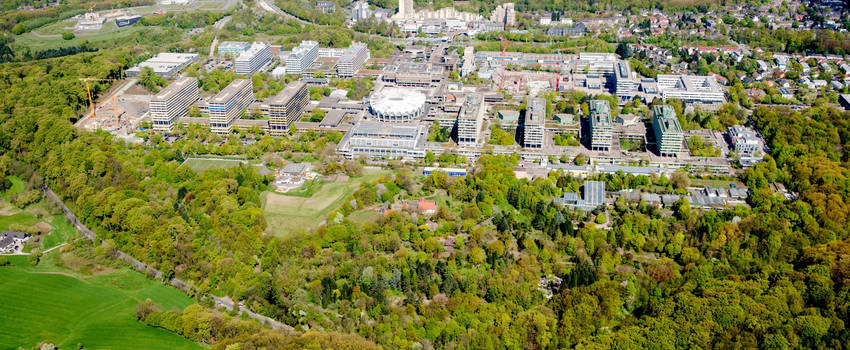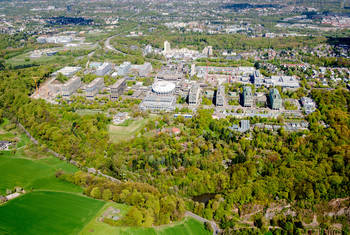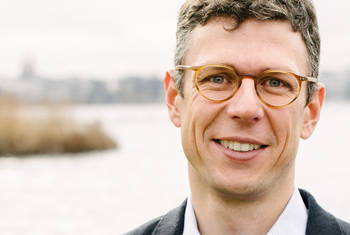Ludger Pries How Were Different Actor Groups Intertwined During the 2015 Refugee Crisis?
Ludger Pries is Chair of Sociology/Organisation, Migration and Participation at Ruhr University Bochum. Until recently, he was also Wilhelm und Alexander von Humboldt Chair at El Colegio de México. He has worked as lecturer and researcher in Germany, Spain, Mexico, Brazil and the USA. Among his fields of expertise are the sociology of work, organization, and migration in a comparative perspective as well as transnationalism and globalization research. His publications include nineteen monographs and twenty-five edited books and he has reviewed for more than fifty international journals and foundations. In addition to board activities for several journals, he is also co-editor of Soziologische Revue.
Area of Research
Sociology
since 2001
Chair and Professor of Sociology/Organisation, Migration, Participation
Ruhr University Bochum (Ruhr-Universität Bochum) (more details)
Department of Sociology
1999-2001
Senior Researcher
Friedrich-Alexander-Universität Erlangen-Nürnberg
Institute of Sociology
1998-1999
Chair of Sociology (stand-in)
University of Göttingen (Georg-August-Universität Göttingen)
1997-1998
Chair of Sociology (stand-in)
Universität des Saarlandes
1996-1997
Visiting Professor / Research Fellow
Institute for Work and Technology Gelsenkirchen (Institut für Arbeit und Technik)
1994-1996
Chair 'Pierre Naville'
Universidad Autónoma Metropolitana Mexico
1992-1994
Professor / German Research Foundation Fellow
El Colegio de Puebla, Mexico
1990-1992
Visiting Professor / Post-doc
El Colegio de México, Mexico-City
1987-1990
Research Fellow
Friedrich-Alexander-Universität Erlangen-Nürnberg
Institute of Sociology
1985-1987
Research Fellow
Center for Research on Education and School Development (IFS)
Sozialforschungsstelle
1995
Habilitation
Friedrich-Alexander-Universität Erlangen-Nürnberg
1989
PhD
Friedrich-Alexander-Universität Erlangen-Nürnberg
1980-1985
Diploma in Social Studies
Ruhr University Bochum (Ruhr-Universität Bochum) (more details)
- American Journal of Sociology
- Berliner Journal für Soziologie
- Critical Sociology
- Critical Perspectives on International Business
- Cuadernos de Relaciones Laborales
- Economic and Industrial Democracy
- Environment and Planning D: Society and Space
- Estudios Sociológicos
- Ethnic and Racial Studies
- European Societies
- European Urban and Regional Studies
- Foro Internacional
- et al.
- Red Lationoamericana de Educacion y Trabajo
- Groupe d'Etudes et de Recherche Permanent sur l'Industrie et les Salariés de l'Automobile GERPISA
- Latin American Studies Association LASA
- International Sociological Association
- Deutsche Gesellschaft für Soziologie
- German Industrial Relations Association
 © RUB/Marquard
© RUB/Marquard

Ruhr University Bochum (Ruhr-Universität Bochum)
Located in the midst of the dynamic, hospitable metropolitan area of the Ruhr, in the heart of Europe, the Ruhr-Universität Bochum (RUB) with its 20 faculties, RUB’s disciplinary institutional units, is home to 5,600 employees and over 41,000 students from 130 countries. All the great scientific disciplines are united on one compact campus.The RUB is on its way to becoming one of the leading European universities of the 21st Century. Almost all courses are offered as Bachelor and Master degree programmes. Our excellence programmes have made themselves an international name: RUB Research School as an international college for structured doctoral research in the life sciences, natural sciences, engineering, the humanities and social sciences; the Cluster of Excellence RESOLV (Ruhr Explores Solvation); interfaculty and interdisciplinary Research Departments, which are mutually, nationally and internationally networked, sharpen the profile of the RUB. Added to this is an unsurpassed programme for the promotion of Early Career Researchers, and an excellent infrastructure. What makes it all come alive is the people who meet on campus with their thirst for knowledge, their curiosity, and their commitment. They help shape the RUB and their open-mindedness makes the RUB an attractive place for people from around the world. (Source: RUB)
Department
Department of Sociology
'The Sociology department in Bochum integrates the view of individuals in their social context onto the meso-level of institutions, organisations and networks and onto the macro-level. Thus the change through the development into a services and knowledge society and globalisation/transnationalisation is investigated. The topics labour and economy, social inequality and gender, city and region, family, organisation and participation, migration, internationalisation and development are central issues. The Sociology Section is oriented on empirical social research. The express orientation on research and practice has not only earned high renown in policy consulting, but it has also enhanced the career chances of our graduates considerably.' (source)
Map
During the refugee crisis of 2015, about 1.5 million refugees entered the European Union. LUDGER PRIES examined how it was possible that this massive inflow of people was managed relatively successfully. In particular, he researched how different actor groups, from volunteers and leftist activists to the police, worked closely together. Employing an organizational network analysis in five Mediterranean countries, as he describes in this video, his research group added to existing studies a view that shows how different actors in the refugee crisis were intertwined on the level of organizations. Interestingly, they found that these networks were very heterogeneous and not homogeneous as is commonly assumed in organizational networks. This can be explained by the special context of refugee protection.
LT Video Publication DOI: https://doi.org/10.21036/LTPUB10552
Refugees, Civil Society and the State. European Experiences and Global Challenges
- Ludger Pries
- In Press









